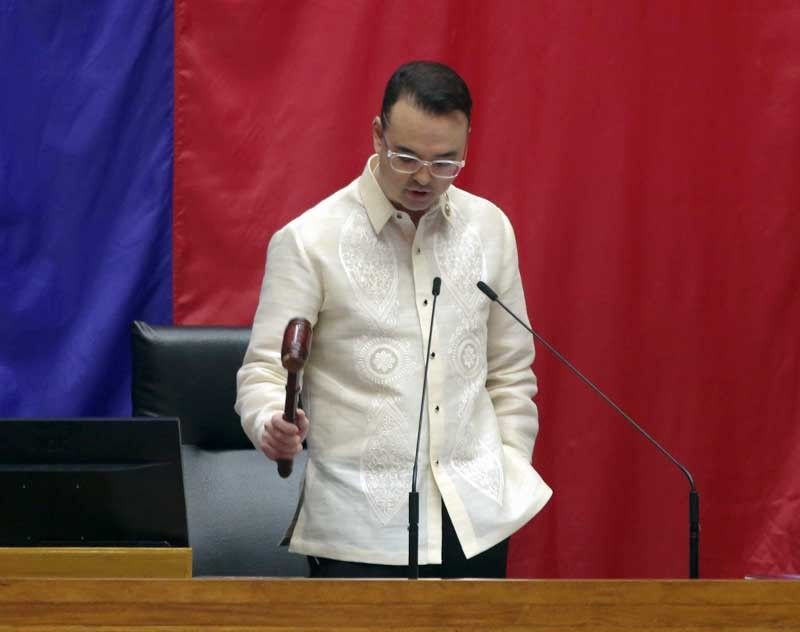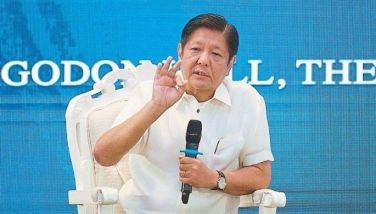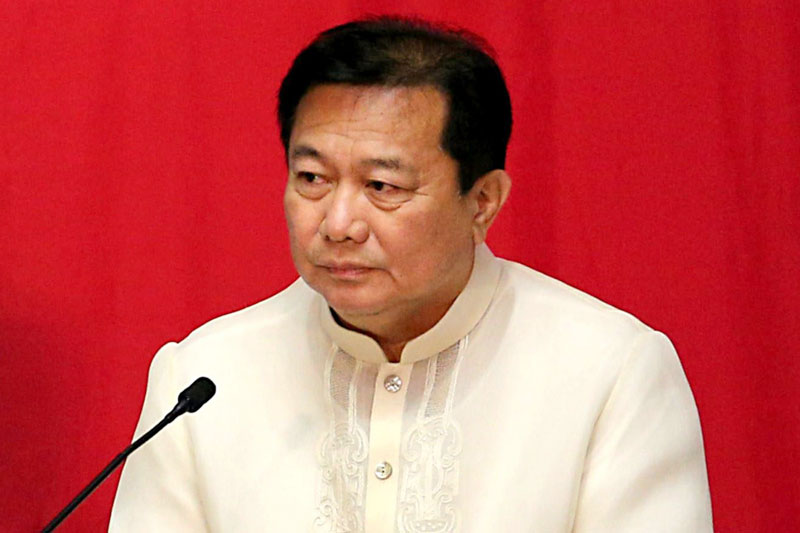18 deputy speakers named

MANILA, Philippines — The House of Representatives has added four more deputy speakers, bringing to 18 the number of deputies of Speaker Alan Peter Cayetano.
Named Cayetano’s deputies on Monday night were Pablo John Garcia of Cebu, Rosemarie Arenas of Pangasinan, Henry Oaminal of Misamis Occidental and Rodante Marcoleta of party-list group Sagip.
They joined Paolo Duterte of Davao City, Ferdinand Hernandez of South Cotabato, Evelina Escudero of Sorsogon, Loren Legarda of Antique, Conrado Estrella III of Abono, Prospero Pichay Jr. and Johnny Pimentel of Surigao del Sur, Roberto Puno of Antipolo City, Eduardo Villanueva of Cibac, Aurelio Gonzales Jr. of Pampanga, Luis Raymund Villafuerte Jr. of Camarines Sur, Raneo Abu of Batangas, Neptali Gonzales II of Mandaluyong City and Dan Fernandez of Sta. Rosa City, Laguna.
Duterte and his 13 other colleagues were chosen deputy speakers earlier. A deputy speaker is entitled to seven additional co-terminus personnel.
The number of deputy speakers has already exceeded what is allowed under Section 31 of the rules of the House.
Under this section, the chamber has 14 deputy speakers, 10 deputy majority leaders and seven deputy minority leaders.
The House in previous Congresses had only three deputy speakers. However, the present House has the discretion to change its rules to add as many deputies as it wants.
Cayetano is planning to designate at least 24 deputy speakers, whose job, among other functions, is to preside over the session whenever the Speaker is not available.
Cayetano is reportedly having difficulty trying to placate as many supporters as possible from various power blocs in the House, including the ruling PDP-Laban, Nacionalista Party to which he belongs, Nationalist People’s Coalition, National Unity Party, Lakas, the Davao group of Rep. Duterte and the Party-list Coalition of Rep. Mikee Romero of 1-Pacman.
Monday night’s additional appointments were those of Benjamin Agarao Jr. of Laguna, Joel Mayo Almario of Davao Oriental, Mercedes Cagas of Davao del Sur, Joaquin Chipeco Jr. of Laguna, Luis Ferrer IV and Alex Advincula of Cavite and Gavino Pancho of Bulacan, as Commission on Appointments members. Narciso Bravo Jr. of Masbate and Ann Hofer of Zamboanga Sibugay were named chairs of the committee on public order and security, and committee on foreign affairs, respectively.
New Cha-cha resolution
Meanwhile, a third resolution asking Congress to amend the economic provisions of the Constitution has been filed with the House of Representatives.
Future speaker Rep. Lord Allan Velasco of Marinduque authored the newest economic Charter change (Cha-cha) measure. Deputy speaker Gonzales and Cagayan de Oro City Rep. Rufus Rodriguez introduced the first two.
Velasco’s proposal is similar to those of his two colleagues. It proposes to insert the phrase, “unless otherwise provided by law,” in 11 parts of the Constitution that limits foreign ownership of land, investments and businesses, including mass media, educational institutions, telecommunications and public utilities.
This means that ownership restrictions under the present Constitution would remain but Congress would be authorized to relax or scrap them.
In filing his resolution, Velasco said even with the present limitations, the country has achieved significant economic growth.
“To fully transform this growth into inclusive and solidary progress among Filipinos, the restrictive economic provisions in the Constitution which hamper the flow of foreign capital investments must be lifted,” he said.
Under a term sharing arrangement brokered by President Duterte, Velasco would take over from Cayetano after 15 months.
Like Gonzales and Rodriguez, the future speaker is suggesting the convening of the House and the Senate as a constituent assembly (con-ass) to propose constitutional amendments.
The two chambers would vote separately, with each obtaining the required three-fourths vote of all members for any Cha-cha proposal.
Gonzales said a con-ass “is more practical for economic consideration, as it does away with a costly election of delegates to a constitutional convention (con-con).”
Aside from billions spent for electing delegates, he said billions more would have to be appropriated for the operation of the convention, including expenses for salaries, offices, travel, hearings and office equipment and supplies.
- Latest
- Trending



























